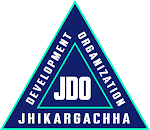Ensuring the health and well-being of both mother and child is paramount, as their health is intricately connected. From prenatal care to postpartum wellness and child development, here's a comprehensive guide on how to maintain the health of both mother and child.
During pregnancy, regular check-ups are crucial. These appointments help monitor the baby’s development and catch any potential issues early. Regular screenings and tests, like ultrasounds and blood tests, are vital to ensure both mother and baby are healthy. A well-balanced diet rich in vitamins, minerals, and essential nutrients supports the baby’s growth and the mother’s health. Foods high in folic acid, iron, calcium, and protein are particularly important, and supplements may be necessary as advised by a healthcare provider. Engaging in moderate exercise, such as walking, swimming, or prenatal yoga, helps manage weight, reduces stress, and prepares the body for labor. However, it’s always best to consult with a healthcare provider before starting any new exercise regimen. Avoiding harmful substances like alcohol, tobacco, and drugs is crucial, as these can severely affect the baby’s development and lead to complications. Limiting caffeine intake and avoiding certain foods that may carry risks, such as unpasteurized cheeses and certain types of fish, is also recommended. Pregnancy can be emotionally challenging, so seeking support from family, friends, or a mental health professional if needed is important. Practicing relaxation techniques like meditation and mindfulness can help manage stress and anxiety.
Postpartum care is just as important as prenatal care. Scheduling follow-up appointments to monitor recovery and address any health concerns is crucial for tracking healing and ensuring there are no postpartum complications like infections or postpartum depression. Continuing with a nutrient-rich diet aids recovery and supports breastfeeding, while staying hydrated is essential, especially for breastfeeding mothers. Gradually reintroducing exercise as recommended by a healthcare provider can aid recovery and boost mood. Gentle activities like walking and pelvic floor exercises can help restore strength and function. Postpartum depression is a serious condition that requires attention, so don’t hesitate to seek professional help. Joining support groups for new mothers can provide comfort and practical advice. Ensuring adequate rest and sleep is also important; try to sleep when the baby sleeps and ask for help from family and friends to manage chores and childcare.
For the child’s health, regular pediatric check-ups ensure that growth and development are on track. Keeping up with vaccinations is crucial to protect against various diseases. Nutrition plays a key role; breastfeeding is recommended for at least the first six months as it provides essential nutrients and antibodies. As the child grows, introducing a variety of healthy foods, including fruits, vegetables, whole grains, and lean proteins, is important. Maintaining good hygiene practices, such as regular handwashing, can prevent the spread of infections, and ensuring proper oral hygiene from an early age is essential. Monitoring developmental milestones, like crawling, walking, and talking, helps ensure the child is developing appropriately. Encouraging activities that promote physical, cognitive, and emotional development is beneficial. Additionally, baby-proofing the home to prevent accidents, securing furniture, covering electrical outlets, and ensuring the child’s environment is safe are critical steps to take. Using appropriate car seats and following safety guidelines when traveling is also essential.
By following these guidelines, mothers can help ensure their own health and the health of their children, creating a strong foundation for a lifetime of wellness.


Post a Comment